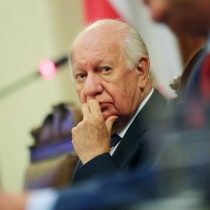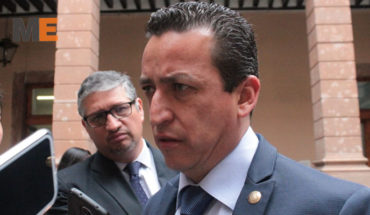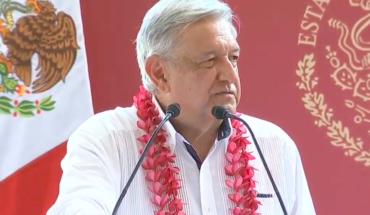
Under the premise “There is no time to waste,” a group of former presidents from Latin American countries drafted a document calling for ethical and economic measures in the current coronavirus crisis.
Ricardo Lagos, President of Chile (2000-2006); Fernando Henrique Cardoso, President of Brazil (1995-2002); Juan Manuel Santos, President of Colombia (2010-2018); Ernesto Zedillo Ponce de León, President of Mexico (1994-2000) and Mauricio Cárdenas, Minister of Finance and Public Credit, Colombia (2012-2018), among other experts, argue that “the COVID-19 pandemic is an unprecedented shock, of uncertain duration and catastrophic consequences that, if not adequately addressed, could become one of the most tragic episodes in Latin American and Caribbean history”. In the letter, former government officials add that “while the crisis requires swift and decisive action on the part of governments, political responses in our region have been uneven. In several cases it has reacted quickly, making public health protection the main objective. Unfortunately, some governments have tended to minimize the risks of the pandemic (…) Latin Americans deserve more than that.”
To complement the above, the former presidents add that the challenge posed is unparalleled in recent history and that the world, Latin America and the Caribbean, “cannot afford late or inadequate responses. Mutual trust, transparency and reason, not populism or demagoguery, remain the best guides in these uncertain times.”
“The crisis cannot be an excuse to weaken our hard-won democracies; on the contrary, it is an opportunity to demonstrate that democracy is in a position to respond to extreme challenges, complying fairly with its citizens,” they conclude.
Solutions
With regard to the measures, they argue that “external support for fiscal accounts and the balance of payments is indispensable, especially for the smaller and least developed countries in Latin America. If both private companies and governments raise their deficits, the same will be done with countries’ current account.”
“Added to this is the capital outflows from emerging markets, which has already been the largest in history, and the resulting, potentially destabilizing exchange rate depreciation. For many economies in the region, much greater official external support will be the only way to deal with this unprecedented combination of adverse shocks,” they say.
Along the way, they point out that the IMF has an essential role to play, both in addressing countries’ fiscal and exchange rate needs in the short term and in continuing to support economies in the future, through an uncertain-running crisis: “The IMF needs more resources and the ability to disburse them quickly,” they argued.
Other measures are that “Latin American governments should demand a new issuance of one trillion Special Drawing Rights (STORS). And while these STESs are allocated to member countries according to their respective quotas, a non-proportional allocation could be facilitated through a fund that accelerates fiscal support to the governments most in need.”
In addition, “immediate duplication of the New Loan Agreements (NAPs) would give the Fund the capacity to meet the urgent demand for upcoming loans,” while finally, as high-access programs are slow to approve for current emergencies, “the IMF should significantly increase access to its rapid disbursement facilities and mild conditionality , or create a new one for the pandemic.”
Central banks
With respect to central banks issuing reserve currencies, these “can help reduce global exchange rate accuracy by expanding their currency swaps with other central banks (…) this can be done directly between banks or, indirectly, through the intervention of the IMF or the Bank for International Settlements (BPI) as liquidity intermediaries.”
They also state that “at the national level”, central banks must use all the instruments at their disposal, innovating when necessary, to inject liquidity into financial markets and the economy.
In this regard, they claim that “multilateral development banks (MDBs) such as the World Bank, the Inter-American Development Bank and CAF should double the amount of net loans to the region for budget support with very little conditionality”, thereby leveraging the high liquidity of global capital markets.
“In exceptional circumstances and in countries without market access, debt service suspension could complement these official loans. MDBs should also provide countries with guidance on the various policy areas involved in crisis response, including their own estimates of COVID-19 morbidity and mortality rates, especially in cases where governments are minimizing the health threat. In the fight against the pandemic, there is no time to waste,” they add.
Guarantees: the role of the public
With regard to local measures, policy-related signatories said: “This emergency requires unprecedented credit tax guarantees, as well as temporary regulatory changes, to incentivize and sustain bank credit. Well-capitalized and managed public banks could play a leading role on this front.”
They also added that fiscal stimulus will also be crucial in the recovery phase, “at which point governments should boost employment and economic activity without exacerbating health risks,” considering that “policies will differ between countries, but will need extraordinary resources during that phase.”
“All of this poses an exceptional challenge: while fiscal needs are now much greater than during the 2008-2009 global financial crisis, fiscal resources in Latin American economies are now more limited. Stimulus costs should be offset by budget adjustments in lower priority areas,” they add.
Local employment
“The decline in export volumes and prices, the loss of tourism revenues and remittances, and large capital outflows, in Latin American economies now adds the massive disruption of domestic production. The sharp drop in supply, combined with a widespread drop in demand, can trigger a contractionary spiral,” they say.
This means that “in this context, it is essential to move forward with bold policies to protect the incomes of individuals and households, including cash transfers for those left vulnerable to the crisis, including informal and independent workers who cannot access employment subsidies or unemployment insurance.”
Government ex-executives say that in order to preserve workers’ jobs and incomes, it is also essential to help businesses, accompanying them during the period of social estrangement, and by encouraging them in the subsequent recovery: “Wage subsidies, conditional on payroll maintenance, protect both companies and workers and are crucial for rapid improvement of the economy.”
However, they states that “on the contrary, if widespread bankruptcies are not avoided, the next victim of the crisis would be the banking system, so that the payment system and the economy as a whole would risk collapsing.”
“Many businesses, particularly small and medium-sized enterprises, will suffer significant income losses for the duration of the crisis. Without support, lack of liquidity will become a solvency problem, and tax deferrals, refinancing of loans and subsidized loans will not be sufficient,” they say.
Fiscal stimulus
From the tax area they assured that “this emergency requires unprecedented credit tax guarantees, as well as temporary regulatory changes, to incentivize and sustain bank credit. Well-capitalized and managed public banks could play a leading role on this front,” they say
In this sense, they argue that fiscal stimulus will also be crucial in the recovery phase, at which point governments should boost employment and economic activity without exacerbating health risks. Policies will differ between countries, but they will need extraordinary resources during that phase, they argue.
According to the above, they argue that this encompasses “an exceptional challenge: while fiscal needs are now much greater than during the 2008-2009 global financial crisis, fiscal resources in Latin American economies are now more limited. Stimulus costs should be offset by budget adjustments in lower priority areas.”
“The commitment of our Executive and Legislative powers to correcting the increase in the fiscal deficit within a reasonable period of time will serve to mitigate the risk of a deterioration in the credit rating that threatens several of our countries,” they add.
Among their main slogans, Latin American leaders must make a strong call for international cooperation to address the crisis, condemning export controls on medical supplies and other critical resources, and demanding increased funding for the World Health Organization, contrary to the “reckless decision of the United States Governments.”
They also stated that “stronger global coordination is needed among health authorities to improve the ability to test, treat and isolate patients, and develop a vaccine and cure, which will be the ultimate solution for the Covid-19 pandemic. Pharmaceutical companies must help countries with reactive materials to expand the number of tests and with free access to technology to produce them.”





